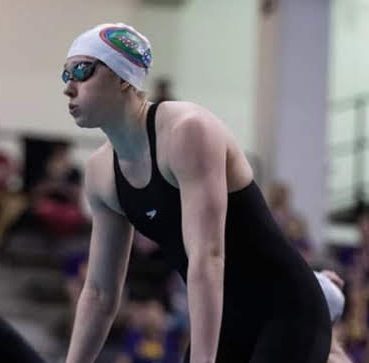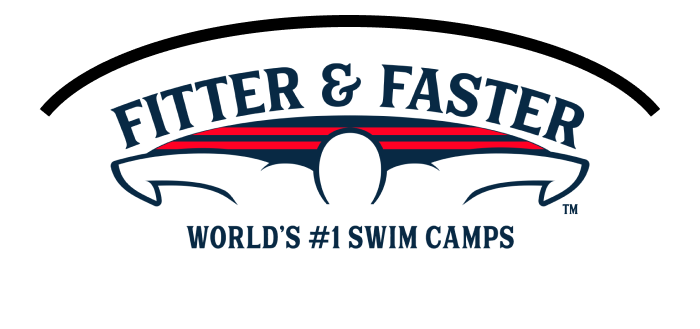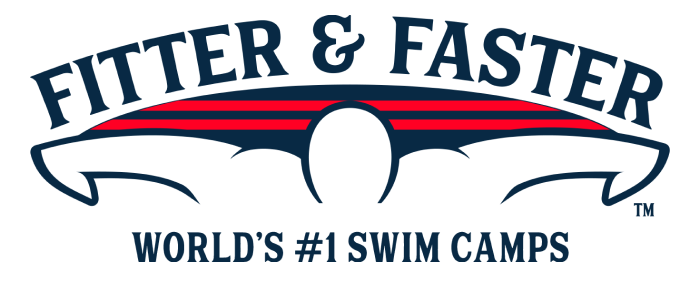Past Clinic: The Essentials of Sprinting Swim Camp & Video Filming and Analysis (Ages 9 to 11)
The Stony Brook School
1 Chapman Pkwy,
Stony Brook,
NY 11790
A description of what was covered at this past clinic is below the upcoming clinics.
Upcoming Swim Clinics and Camps
Within 250 miles of Stony Brook, NY.
Past Clinic
Introduction
Fitter & Faster is producing a 2-day swim camp and a video filming & analysis session for competitive swimmers ages 9 to 11 at The Stony Brook School in Stony Brook, New York on December 28 & 29, 2025! Click here for the swim camp page for ages 12 & over.
THE ESSENTIALS OF SPRINTING SWIM CAMP (Ages 9 to 11)
-> DAY 1 (Sunday, December 28): Establishing Speed
-> DAY 2 (Monday, December 29): Racing Skills
VIDEO FILMING & ANALYSIS
December 28, 2025 (3:30-5:30 PM): Provide your swimmer with the chance to receive professional video analysis of their stroke, just like the pros. Choose to have one stroke filmed and analyzed with a single registration, or save by selecting the Camp + Video Bundle, which includes both days of the swim camp along with filming and analysis of all four strokes.
Click the “Curriculum Menu” below for details on the swim camp and video session.
-> Availability in each session is limited to 22 participants to ensure the highest level learning experience.
-> SAVE when you purchase an “Entire Camp Bundle” for your swimmer.
Select a curriculum below
THE ESSENTIALS OF SPRINTING SWIM CAMP: December 28 & December 29, 2025
Swimming fast requires good technique, efficiency, power, and a hard working athlete. Participants in this swim camp will advance their skills that apply to fast swimming in every stroke. Now is the time for swimmers to establish and cultivate habits to swim their shorter races as fast as possible with good technique that will position them for success as they mature.
- DAY 1 (Sunday, December 28): ESTABLISHING SPEED: At this session your swimmer will practice the essential components to high performance sprinting.
- Body Position: A competitive swimmer’s body position is the key to fast swimming. Most swimmers are NOT hydrodynamic in the water - and that has a big effect on how fast they “allow” themselves to swim - especially as they get older. Let’s find the right body position for your swimmer.
- Stroke Length: Lengthening their stroke will enable your swimmer to “catch” and hold onto more water to propel them as they swim. Whereas a short stroke is inefficient and not sustainable for very long. The clinicians will work with participants on this important skill for fast swimming.
- Tempo: When sprinting short races young swimmers often tend to take too many strokes (“spin their wheels”) and not “hold onto the water”. At this camp we will find the appropriate tempo to maximize their own personal speed.
- DAY 2 (Monday, December 29): RACING SKILLS: On Day 2, your swimmer will apply the skills that we practiced on the first day of this camp to important segments of every sprint race, including the moment your swimmer pushes off the wall; breakouts; finishes and all out sprinting!
- Breakouts: Many swimmers add movement within their breakout that creates drag and destroys all of the power created during their underwaters. Participants will work on timing their breakouts to accelerate to explode into each lap.
- Sprinting: On Day 1 your swimmer worked on body position, tempo and length of stroke. Today we are going to apply those skills to swimming “all out” on top of the water with efficiency and power.
- Walls, Walls, Walls!: Approaching the wall at top speed in preparation for the fastest turn is vital. Swimmers will work on techniques to get in and out of every wall faster!
- Finishes: Dropping time and even winning or moving up a few spots in the results can all come down to the last stroke! A well-timed finish at full speed, with full-arm extension and head down can make a difference of up to a full second in a race! Your swimmer is going to learn how to take advantage of the finish to drop time!
- Sprinting Application: Swimmers at this session will work on applying their newly developed skills during racing scenarios. As with all the other segments of this camp, the clinicians will provide feedback for your swimmer to take home and apply at upcoming practices and meets.
VIDEO FILMING & ANALYSIS: December 28, 2025
Since so much of the stroke happens below water – it is incredibly important to see what’s going on below the surface! Small adjustments to your stroke can lead to big time drops! This is your opportunity to get beautiful footage of your stroke and get analysis from an expert… and you can review with your coach as well!
- ANALYSIS: Our Fitter and Faster expert will use a video analysis application to record their comments on your technique. They will use slow motion, pause the video at specific points, and draw on the swimmer's video all while explaining where opportunities for improvement are. Each stroke will have approximately 3 to 5 minutes of expert commentary that you can review with your coaches at home!
- DRILL RECOMMENDATIONS: You will receive recommendations for drills to correct the technique of each swimmer.
- SIGN UP: Select to have one stroke filmed. Or, SAVE by choosing to have all four strokes filmed. The "multi-stroke options" are for individual swimmers and cannot be split.
- ARRIVING AT THE POOL (Retain your order number): You will receive an e-mail approximately one week before the filming session with the specific time for your swimmer to check in, warm up, and be filmed. Please retain your order number - this is how swimmers will be identified on that schedule. When you arrive at the pool, you will be greeted by Fitter & Faster staff who will provide you instructions on the filming process.
- WARM UP: Participants will have an opportunity to warm up before filming.
- FILMING: Our camera operator will have you swim two 25s at a strong pace of each stroke purchased (1 stroke or all 4 strokes). The filming of each stroke will take about three minutes. The video will capture a side angle and a front angle below the water to get an accurate view of your technique.
- SESSION LEGNTH: Depending on the number of strokes you are getting recorded, your session time will run between 5 and 15 minutes.
- TIMELINE: All videos will be analyzed and returned within 14 days of the camp. The analyzed videos along with the original video will be sent via email for you to keep!
SESSION START TIMES
- December 28 & 29, 2025:
- DAY 1: Check-in 9 AM, Camp 9:15-11:45 AM
- DAY 2: Check-in 11 AM, Camp 11:15-1:45 PM
- Depending on the number of strokes you are getting recorded, your session time will run between 5 and 15 minutes.
- You will receive an email a week before the filming session with the specific time for your swimmer to check in, warm up, and be filmed.
- December 28, 2025: Swimmer's scheduled time will be between 3:30-5:30 PM.
- Elite Video Filming & Analysis is for ALL swimmers ages 9 & Over.
ASK QUESTIONS
Swimmers and parents are invited to ask the clinicians questions during a Q&A session. Gain insight into their training regimen, diet and nutrition, and recovery tactics.
WATCH THE CLINICIANS
Observe clinicians swim at full speed and demonstrate a progression of perfectly executed drills to achieve powerful, efficient and fast swimming.
PUT YOUR SKILLS TO THE TEST
Throughout the camp, swimmers will practice what they've learned with some of the world's most elite Swimmer Clinicians and coaches!
Take a photo, get autographs, and chat with your clinicians!

Gabrielle Hillis
Gabby Hillis combines her love for swimming and passion for working with young athletes in a career as a swim coach. She strives to help swimmers learn, grow, share, improve and enjoy what they are doing. She says, "Any positive impact I can make towards a swimmer’s success makes it all worth it!”.
Inquisitive, Educated Swimmers are Faster Swimmers! Sign up today!
Search all of our clinics...or request a clinic in your area









